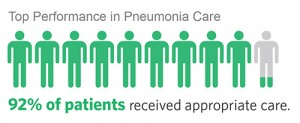Background:
In Why Doctors Should Intervene by Terrance Ackerman, the author brings up the idea that autonomy is compromised when one is sick. To him there is a premium being put on patient autonomy by the community which while good intentioned is ultimately flawed. This is because the current model of autonomy “fails to take account of the transforming effect of illness.”(14) This is not an attack upon the idea of autonomy rather an argument that the current model of autonomy that is legally taken is inadequate and potentially harmful by limiting to patient practitioner dynamic to merely a business transaction with the only responsibility is for the doctor towards autonomy is being honest.
Dilemma:
The dilemma presented in this paper is straight forward on the surface but when taking a deeper look it becomes rather complicated. On the surface the only question we must answer is if sickness does compromise autonomy. If one were to disagree with Ackerman’s point of view, then the current model outlined by Beauchamp and Childress use for autonomy becomes valid and the argument theoretically ends there. We can take that barring mental, physically, or educational disability so long as the patient has intentionality, understanding, and non-control then they are autonomous and as a practitioner we should respect their autonomy. Of course this unto itself leads into the questions of where do we draw the line of understanding and competency. How do we define or test for understanding in patient and what if the patients beliefs are false? Does this remove their intentionality? Also we must ask when does a practitioner trying to help a patient become coercive and violate the non-control aspect.
A second set of dilemmas comes up if we do agree with Ackerman’s ideas on autonomy. If we are too assume that sickness does compromise autonomy we must ask ourselves how much does it violate autonomy and more importantly in what way is autonomy being compromised? Obviously there is pain and discomfort which may cloud judgement yet we take most people who have a cold to be competent in terms of decision making and only if they are undergoing extreme pain does the question of autonomy even come up. Second it brings up the question of how to limit the power the practitioner has over the patient. If Ackerman’s ideas were to become the standard for the industry this could lead to massive abuse as the patient’s will become overridden by the practitioner’s decision. As much as we want to assume that no physician or doctor would abuse this relationship there is always the chance of this occurring and thus how to prevent such abuse is a problem that must be addressed.
Discussion:
I wish to discuss the second set of dilemmas as the first set of dilemmas has been discussed before and highlighted in more detail in previous case studies.
I personally actually do agree with many of Ackerman’s points. From personal experience sickness does affect one’s mood heavily. Even small sicknesses like the common cold tend to turn people irritable and unhappy do to the pain and discomfort caused by the cold. For more advanced diseases this effect is even worse. An irritable person is not a level headed person and thus is liable to make rash or unwise decisions. This to me means that we should take into account this factor.
The current model as Ackerman has pointed out states that regardless of mood or sickness the default is that we assume the individual to be autonomous and up to the task of doing the best for themselves until proven otherwise. This to me is dangerous as most things in society tend to require the opposite. A person must prove themselves that they are autonomous and competent individuals able to fulfill certain duties for a given task. Take for example the process to get into college or apply for a job. One does not simply tell a college or company by asking them to take them and pay them a small fee. They must prove themselves to the college or company that they can fulfill the duties required to them based on what they have done in the past. Being sick I feel should be dealt with the same way. Physicians have gotten to their position because they have proven they are competent and know what they are doing in regards towards sickness. A normal person does not have that level of training or education. Thus when making decisions towards curing sickness while focusing on patient autonomy while we are sick does not make sense as there is the double threat of lack of understanding and irritability. Thus we should place less importance and weight on patient autonomy and let the practitioner do the job he was hired to do.
This of course does not mean completely remove patient autonomy, but rather put it at less of a premium. As for where to draw the line on understanding education plays a key role. This education on what it means to be sick can be taught as the practitioners are taught thus if the patient is willing to learn more about their disease and treatment then by all means should they be helped by the practitioner in learning more. On how to judge understanding and how much autonomy has been compromised, this should be part of the curriculum in becoming a practitioner. As Ackerman puts it there is a “physician’s art” and to me that means as an art it can only be learned through experience. Thus physicians should be trained in a way that teaches this art. This may not seem scientific but for example professional cooks learn from experience on how to gauge when a meat is fully cooked or when a pastry is right. This is not measured or explained to in lecture only learned through experience and hard work. Society today place a premium on a methodical and scientific approach and there is a stigma on what cannot be explained yet there are many things that we do as humans that cannot be easily put into words and the physician’s art is one of them. This idea of education also applies to how we can limit the possibility of abuse as training for a physician should include teachings about limiting the abuse of the physician-patient relationship.
Citations:
Ackerman, Terrance. “Why Doctors Should Intervene.” The Hastings Center report 12(1982):14-17.
Beauchamp, Tom L., and James F. Childress. Principles of Biomedical Ethics. 7th ed. New York, NY: Oxford UP, 2009. Print.

